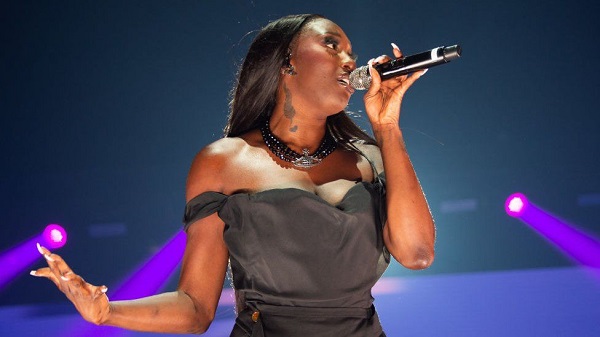Aya Nakamura, the Malian French singer has been at the centre of a political storm since March when it emerged in media reports that president Macron had suggested the singer of “Djadja” could perform at the opening ceremony on July 26.
Influential far-right politicians and other conservatives have rounded on the 28-year-old, accusing her of “vulgarity” and not respecting the French language, while racist online abuse sparked a police investigation.
“I think she is certainly suitable for the opening or closing ceremony of the Games,” Macron told reporters during the inauguration of an Olympic aquatics centre in northern Paris in his first comments on the controversy.
“If she’s part of the ceremony with other artists, I think it’s a good thing,” he added, saying the “Games and the ceremonies should resemble us. She is part of French culture and French music.”
The recent row over Nakamura and a spat over the official poster for the Games — in which a Christian cross has been omitted from a Paris landmark — underline the tricky job organisers have in uniting a fractious country behind the Olympics.
An Islamic State-claimed attack last month on a Moscow concert hall, which left at least 144 people dead, has also revived fears extremists might be plotting to target the first Games in the French capital in 100 years.
“We need to have confidence in ourselves,” Macron told reporters, adding: “Yes, there are risks, but there are risks in life and the best way to avoid risks is to do nothing. I don’t think that’s the mission of the French nation, or ever has been.”
Up to the final second “we will be determined, vigilant and at work. We’ll succeed and it will make the country proud,” he promised.
Concern has centred on the spectacular opening ceremony being planned on the river Seine that will see athletes travel several kilometres on a flotilla of more than a hundred boats — rather than parade through the athletics stadium, as is customary.
Macron insisted that the open-air extravaganza, with as many as 500,000 spectators watching from the banks and nearby buildings, remained the “favoured scenario” but contingency plans were being worked on.
“Everything is a cause of vigilance and attention; nothing is a cause of worry or paralysis. That is my and our state of mind,” he said.
With relations with Russia in a nosedive over the war in Ukraine, he warned that he had “no doubt” Moscow was looking to target the biggest sporting event in France since the football World Cup in 1998.
In further efforts to lift the gloom around the Olympics, Macron urged observers to look at the achievements so far, with all the sporting infrastructure on track and with a budget that is only slightly higher than expected.
The 188-million-euro aquatics centre is one of only two new venues built for the Paris Olympics — was handed over to the local organising committee a month ahead of schedule.
Sports Minister Amelie Oudea-Castera told French television last week the budget for the organising committee might over-run by 15 percent, compared to 200 percent in London in 2012.
The total cost to taxpayers remains unknown, however, with the final bill set to be as high as five billion euros, instead of three as previously announced, the state auditor said last week.
The Olympics are set to take place from July 26-August 11 followed by the Paralympics from August 28-September 8.

